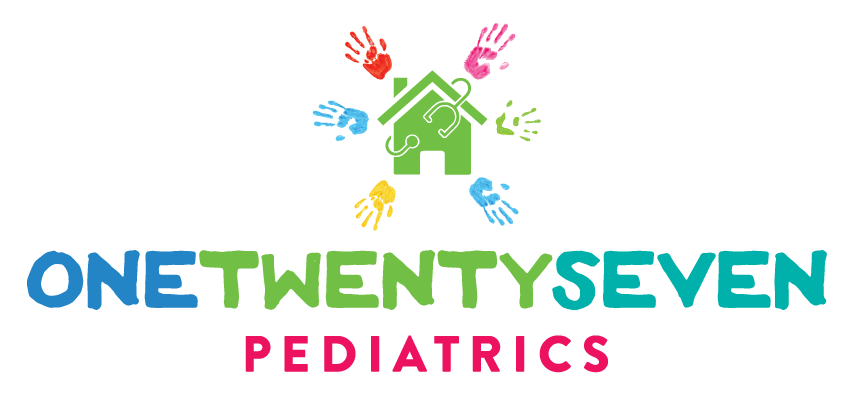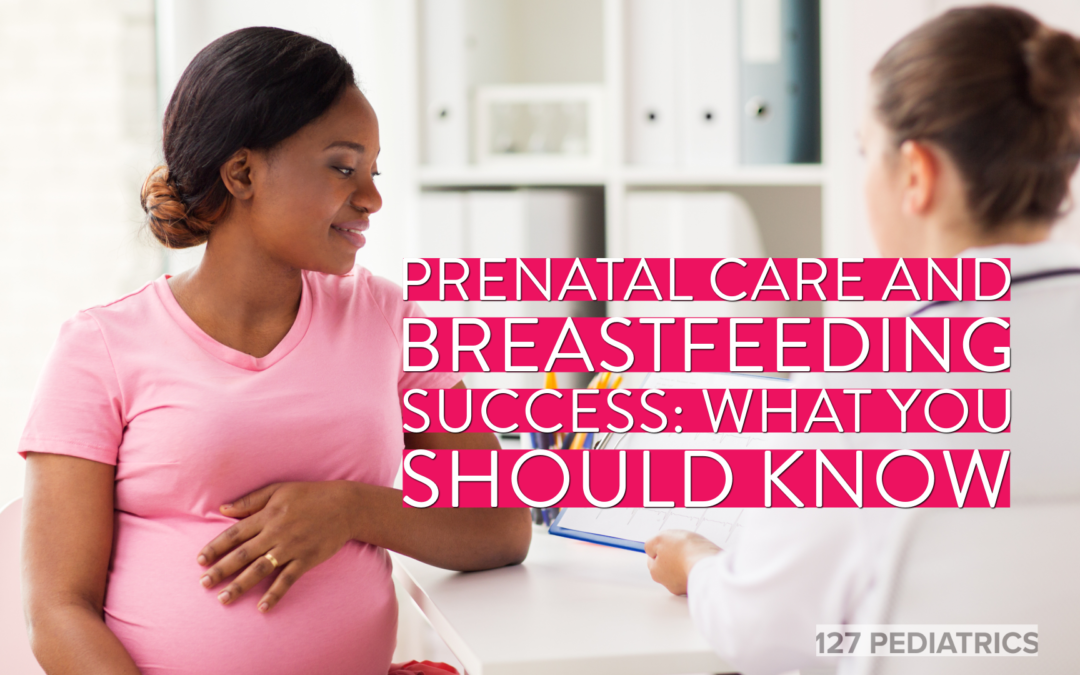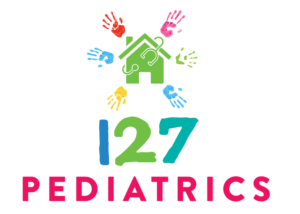Prenatal care and breastfeeding success go hand in hand. While there is much more to success with breastfeeding than just attending all of your obstetrician appointments, care during your pregnancy is a critical piece of the puzzle.
Sarah was pregnant with her second child in the fall of 2013. She successfully breastfed her first baby for the first 18 months of his life. As she approached her second pregnancy, Sarah had a similar goal in mind. Initiation of breastfeeding in the hospital followed by continued breastfeeding for at least 12 months or more.
As part of her prenatal visits, Sarah and her husband soon discovered that their second child would be born with a cleft lip and palate. Immediately, she was concerned that this news would have an impact of her duration of breastfeeding. As she dove into her own research on breastfeeding and babies with a cleft palate, she began to feel anxious but hopeful.
Through her obstetrician, she was able to find and meet with a breastfeeding medicine physician prior to the birth of her son. As a result, she anticipated the challenges of breastfeeding her new baby with confidence. She was also able to meet with a child feeding specialist that helped her to adapt her breastfeeding approach to her baby’s needs.
Without prenatal care, Sarah would not have anticipated that her baby would be born with a birth defect. In addition to anticipating this anomaly, prenatal care also allowed her to optimize her own health, keep tabs on her mental health and participate in prenatal breastfeeding education to refresh her memory.
Benefits of Breastfeeding
The American Academy of Pediatrics Section on Breastfeeding updated their policy statement in 2023. It now recommends exclusive breastfeeding for the first 6 months of life, followed by continued breastfeeding with the addition of complementary foods through at least the first two years of life or beyond. This is because human milk not only provides nutrition to growing babies, but it also supports their gut, brain and immune system development as well.
Breastfed infants have fewer illnesses in the first few months of life. This includes decreased ear infections, respiratory infections and stomach bugs in the early months after birth. Additionally, breastfed infants enjoy long term health benefits as well compared to the peers who are fed infant formula.

Optimize Your Health
One of the greatest things that you can do for yourself and your new baby is to make sure that you are the healthiest version of yourself. Breastfeeding does not come easy for most new mothers and not paying attention to your own health could put you behind the curve. There are many maternal health conditions that can lead to insufficient milk supply.
In addition to knowing how to treat your health conditions, prenatal care affords you the opportunity to optimize your health in other ways.
- Maintain a healthy lifestyle during pregnancy. This includes exercising in moderation, eating a nutritious diet, and staying hydrated. Regular exercise and a balanced diet support breast milk production postpartum as well as offers many benefits during pregnancy. A healthy diet provides necessary nutrients for yourself and your baby. Obstetric care providers can also address early pregnancy symptoms like nausea and vomiting and help optimize nutrition during the first weeks of pregnancy.
- Take your vitamins. Prenatal nutritional interventions improve maternal and infant health outcomes. Folic acid specifically prevents neural tube defects. Prenatal vitamins provide extra nutrient support for your body. Vitamin D supplementation during and after pregnancy is important for your breast milk’s ability to carry vitamin D to the baby.
- Understand your own health conditions. Medical conditions like metabolic disease, diabetes, or thyroid problems can affect milk production and breastfeeding. However, proper prenatal care can help identify and manage these conditions, reducing their impact on breastfeeding. Healthy pregnancies result in healthy moms and babies.
- Be aware of how your medical history can affect breastfeeding success. Breastfeeding can be challenging for women with a history of infertility or conditions like polycystic ovarian syndrome. These conditions can affect the hormonal balance in your body and may impact the production of human milk for your baby. In addition to prenatal care, you should schedule a prenatal consult with a breastfeeding medicine expert.
- Learn about breastfeeding. During pregnancy, you can discuss the potential challenges of breastfeeding. Read about and learn how to overcome potential breastfeeding challenges:
- Latching problems
- Low milk supply
- Nipple pain
Prevent and Anticipate Complications
Prenatal care practices supportive of healthy pregnancies decrease your odds of pregnancy and delivery complications. Women who have regular prenatal care with and obstetrician or midwife have fewer complications which lead to healthier moms and babies as well as increase breastfeeding success.
Additionally, early and effective interventions for prenatal complications such as gestational diabetes and high blood pressure will promote overall health and well-being for both mother and baby, increasing the chances of successful breastfeeding.
Another goal of prenatal care is the prevention of preterm labor and birth. Preterm birth can make exclusive breastfeeding challenging in many ways. Not only does premature delivery lead to mother and baby separation in the hour after birth, but preterm infants are often less successful at breastfeeding.
Birth Plan and Breastfeeding Plan
Prenatal care affords you the opportunity to discuss your plans for both birth and breastfeeding with your health care provider. While not all obstetricians are well versed in breastfeeding, as a pregnant woman, you can discuss your preferences for maternity care and infant feeding with your healthcare team. In addition, a written plan for both your birthing desires and your breastfeeding goals will go a long way to help you feel confident when the big day comes.
Whether you chose a hospital that is part of the baby-friendly hospital initiative or not, you can tour the hospital during your pregnancy to get an idea of how they view breastfeeding.
Great questions to ask are:
- How do you treat the first hour after birth?
- Is there a policy for supplementation with infant formula in place?
- Do newborn babies stay in the room with their mothers or are they taken to the nursery for any reason?
- Is there a contact for mothers who are struggling with breastfeeding?
- How does the staff support breastfeeding?
During the birth hospitalization, there will be a lot of things flying at you all at once. Not only are you recovering from birth, but you are learning how to feed a new baby. Breastfeeding is time sensitive in many respects. A written plan to follow will help you to reach your breastfeeding goals.
Learn About Breastfeeding
In late 2022, the NIH published a systematic evidence review that showed that mothers who learn about breastfeeding during pregnancy were more likely to be able to adhere to recommended breastfeeding guidelines. Structured breastfeeding education gives mothers the tools to reach their breastfeeding goals.
Breastfeeding outcomes improve with prenatal breastfeeding education. Learning ahead of your baby’s birth will not only give you more confidence, but it will help you to not miss critical windows of time. The first hour of life is extremely important for breastfeeding success. Breastfeeding rates improve when mothers are allowed to have uninterrupted time in skin to skin with their newborn babies. In addition, early intervention for latching problems and delayed milk production will also lead to greater success. None of this is possible without anticipation and early expression of breast milk. Maternal education is one of the keys to success.
Screening for Mental Health
Pregnancy and the early months postpartum are some of the most vulnerable times in a woman’s life. If you have struggled with mental health issues outside of this period of time, likely you will find this piece of the puzzle a greater challenge without the support and guidance of your prenatal care provider.
Newborn infants require care around the clock. Sleep deprivation and the hormonal shifts that occur early postpartum contribute to postpartum depression and anxiety.
Additionally, untreated mental health issues have negative effects on both the mother and the baby. Conditions such as anxiety, depression, and postpartum mood disorders can make it difficult for a woman to start or continue breastfeeding. Feelings of negativity, low self-esteem, and lack of confidence can affect the mother’s bonding with her baby and emotional well-being, making it challenging to create a nurturing and supportive breastfeeding environment.
How 127 Pediatrics Can Help You to Succeed with Breastfeeding
At 127 Pediatrics, we know that breastfeeding can seem like a daunting goal to achieve. We would love to be a part of your prenatal care by offering you free online resources. Not only is this blog an excellent source of breastfeeding education, but we also offer a free YouTube channel with educational content as well as our weekly newsletter.
© 127 Pediatrics, April 2024
This article is for information purposes only. Please consult your personal physician for medical advice.

Dr. Andrea Wadley is a pediatrician and lactation consultant. She is also board certified in breastfeeding medicine. She started 127 Pediatrics in July 2018 as a way to provide a different option for both pediatric and breastfeeding care for families in her community and beyond.


